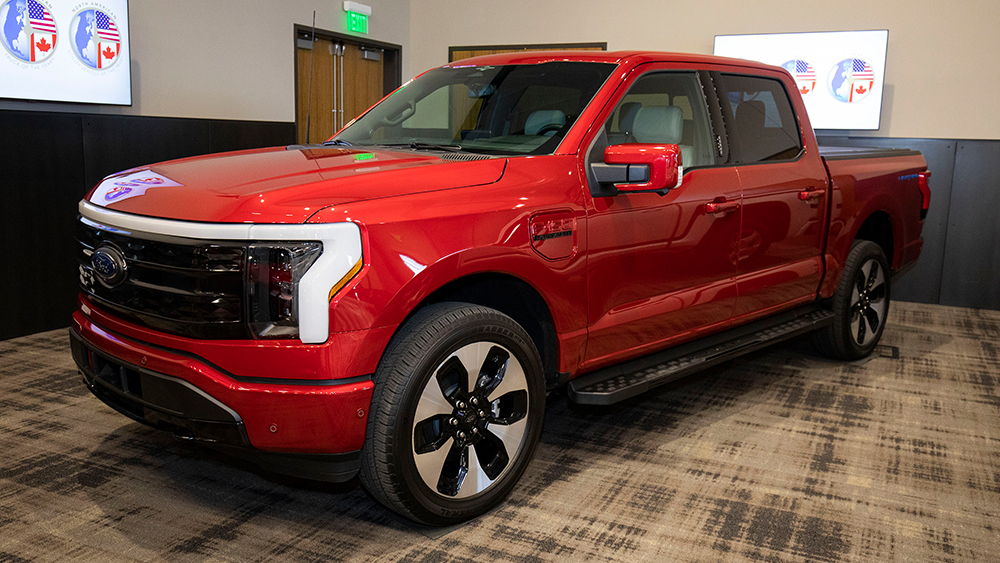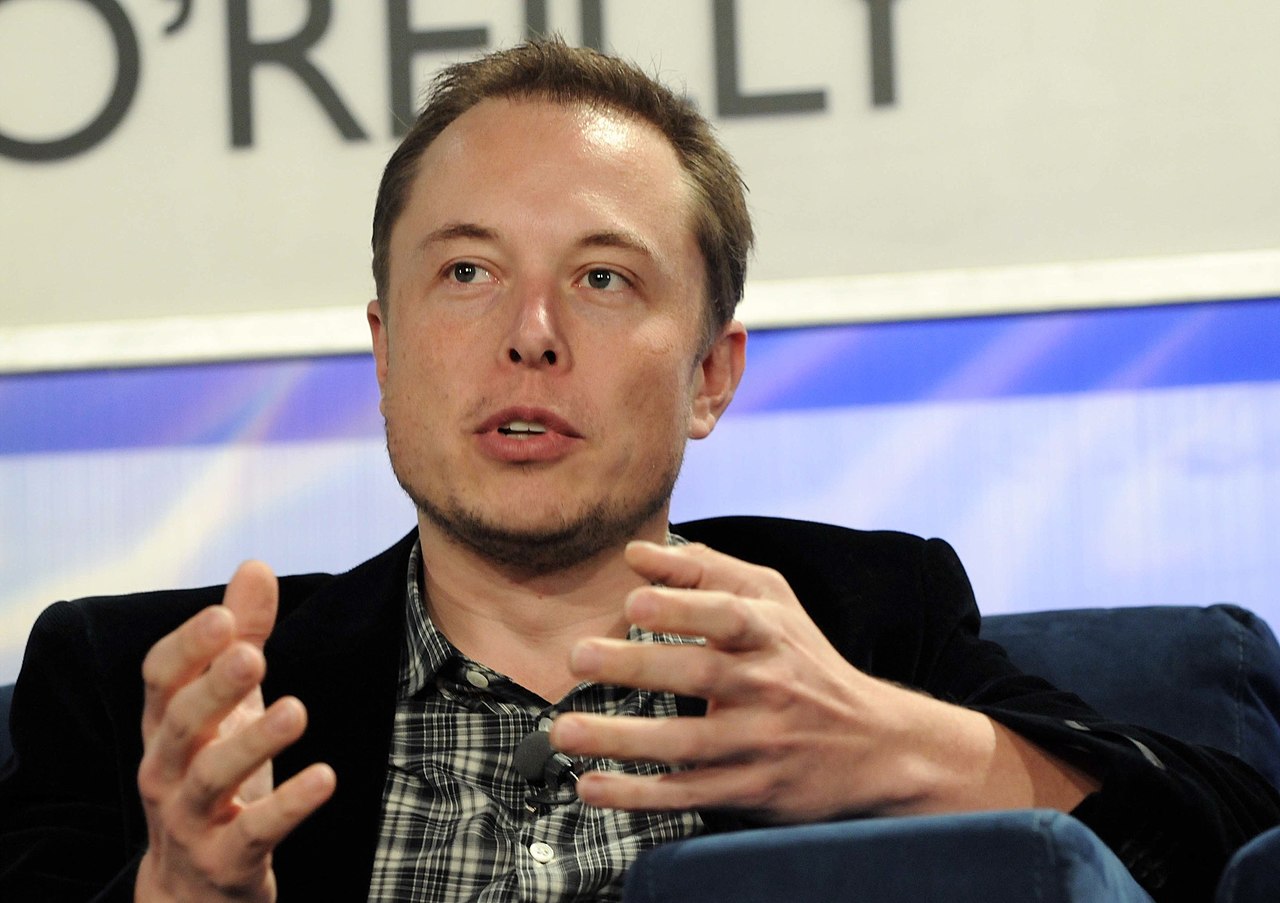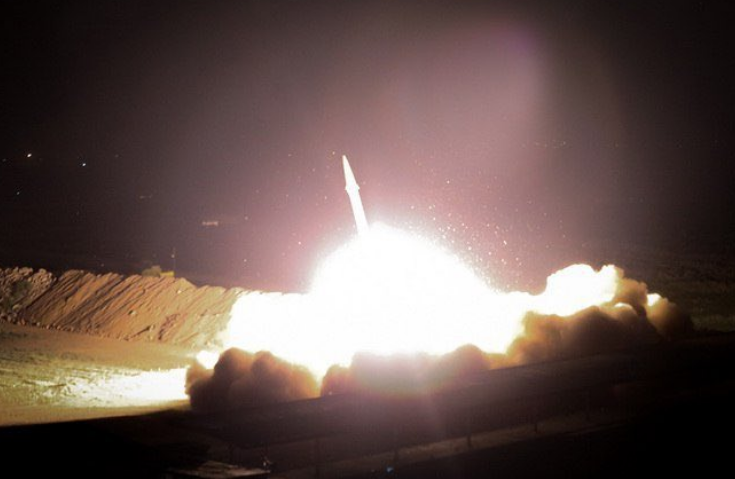House investigates carmaker Ford over its partnership with Chinese companies, citing national security issues
02/01/2024 / By Ramon Tomey

A committee in the House of Representatives has launched an investigation into the Ford Motor Company’s partnership with Chinese firms, citing national security issues.
The House Select Committee on China (HSCC) is asserting that Ford plans to use technology and software from four Chinese companies, whose names are currently redacted. The said companies also supply the Chinese People’s Liberation Army, China’s Ministry of Public Security and North Korea’s Ministry of Foreign Affairs. Moreover, the HSCC claims that the four firms have direct ties to the ongoing genocide of Uyghur Muslims in China’s western Xinjiang region.
HSCC Chair Rep. Mike Gallagher (R-WI) and House Energy and Commerce Committee Chair Rep Cathy McMorris-Rodgers (R-WA) reportedly uncovered Ford’s plan to use tools from the four companies while probing its partnership with Contemporary Amperex Technology Co. Ltd. (CATL). In February of last year, Ford announced its partnership with the China-based electric vehicle (EV) battery maker to build a facility in Marshall, Michigan. The $3.5-billion plant will produce lithium-iron-phosphate EV batteries.
Given this finding, Gallagher and McMorris-Rodgers sent letters to Commerce Secretary Gina Raimondo and Treasury Secretary Janet Yellen over the matter. In their letters to the two secretaries, the lawmakers called for the Biden administration to immediately blacklist the four companies Ford plans to partner with.
The HSCC and HECC chairs warmed that even before Ford’s Michigan plant goes online, its “entire security system could be compromised” by the software from the four Chinese firms. They continued: “The same company that is actively supporting [China’s] surveillance state will have the capability to embed backdoors, spyware and other forms of malware within Ford’s iPaaS [integration platform as a service] infrastructure, compromising the confidentiality and integrity of Ford’s sensitive information and posing [a] risk to Americans’ data privacy rights.” (Related: Ford’s deal with Chinese EV battery maker sparks security concerns.)
Ford CEO also under investigation
Gallagher and McMorris-Rodgers also sent a letter to Ford CEO James Farley Jr. over the issue. They requested that the Dearborn, Michigan-based company make an official available for interview. The said official will be questioned regarding any due diligence that Ford conducted before and after it entered into the agreements with CATL.
In response, a Ford spokesperson told the Epoch Times in a statement that the carmaker is fully committed to helping “the committees understand this Ford wholly-owned-and-operated project.” They added that the company welcomes “any information from any source concerning the integrity of [its] supply chains and partners.”
According to the spokesperson, Ford has “always followed all government regulations across our business” and will continue to do so. All companies that partner with the carmaker are also required to follow rigorous internal guidelines.
“Beyond legal requirements, Ford suppliers are required to meet our high standards and codes of conduct – including those to protect human rights – and are obligated to extend those requirements to suppliers with whom they might work,” the spokesperson said.
Per the Epoch Times, Ford expects production at the Michigan factory to begin in 2026. The plant is estimated to churn out enough batteries for 400,000 EVs annually. However, the deal has been plagued by both national security and economic concerns – which both company executives and state officials dismissed as overblown.
Michigan Gov. Gretchen Whitmer, a Democrat, has defended the project. She claimed that the battery factory in the Great Lakes State could create at least 2,500 jobs and boost the local economy. However, her office did not respond to a request for comment about the latest development.
In contrast, Virginia Gov. Glenn Youngkin – a Republican – has dubbed the proposed battery plant a “Trojan horse” for Beijing to undermine U.S. efforts to strengthen the domestic automotive industry. This, he said, is the reason why he pulled out the Old Dominion as a potential site for the plant.
Visit CommunistChina.news for similar stories.
Watch JD Rucker warn that BlackRock and China will own the U.S. EV market in the clip below.
This video is from the JD Rucker channel on Brighteon.com.
More related stories:
Ford resumes Michigan EV battery plant but reduces production capacity by 40%, drops about 800 jobs.
Ford loses billions on electric vehicles, reduces its EV production target.
Sources include:
Submit a correction >>
Tagged Under:
battery plant, big government, business, China, Chinese Communist Party, Chinese companies, congress, electric cars, electric vehicles, EV batteries, Ford Motor Company, House Energy and Commerce Committee, House of Representatives, House Select Committee on China, Michigan, national security, partnership, robocars, transportation
This article may contain statements that reflect the opinion of the author
RECENT NEWS & ARTICLES
COPYRIGHT © 2017 FUTURETECH.NEWS
All content posted on this site is protected under Free Speech. FutureTech.news is not responsible for content written by contributing authors. The information on this site is provided for educational and entertainment purposes only. It is not intended as a substitute for professional advice of any kind. FutureTech.news assumes no responsibility for the use or misuse of this material. All trademarks, registered trademarks and service marks mentioned on this site are the property of their respective owners.




















